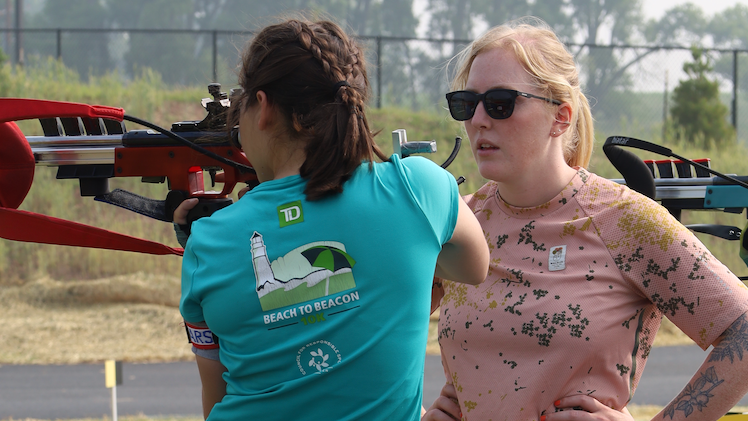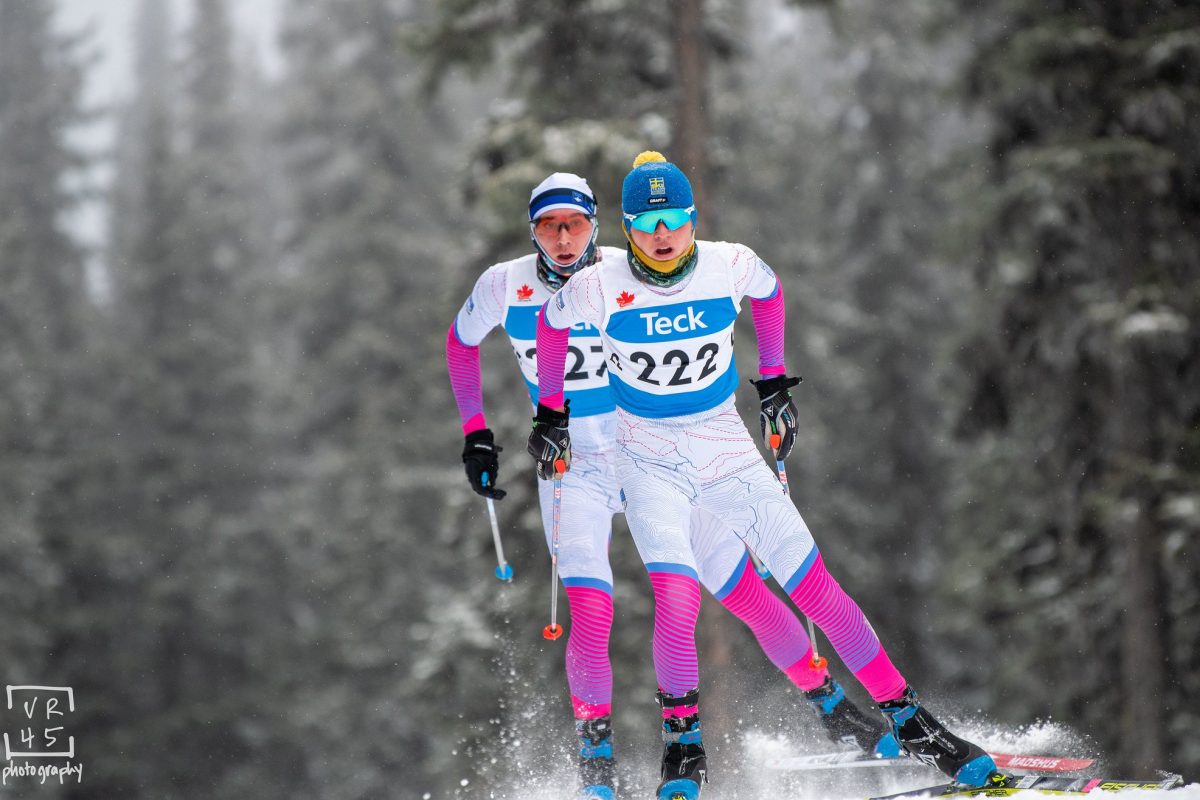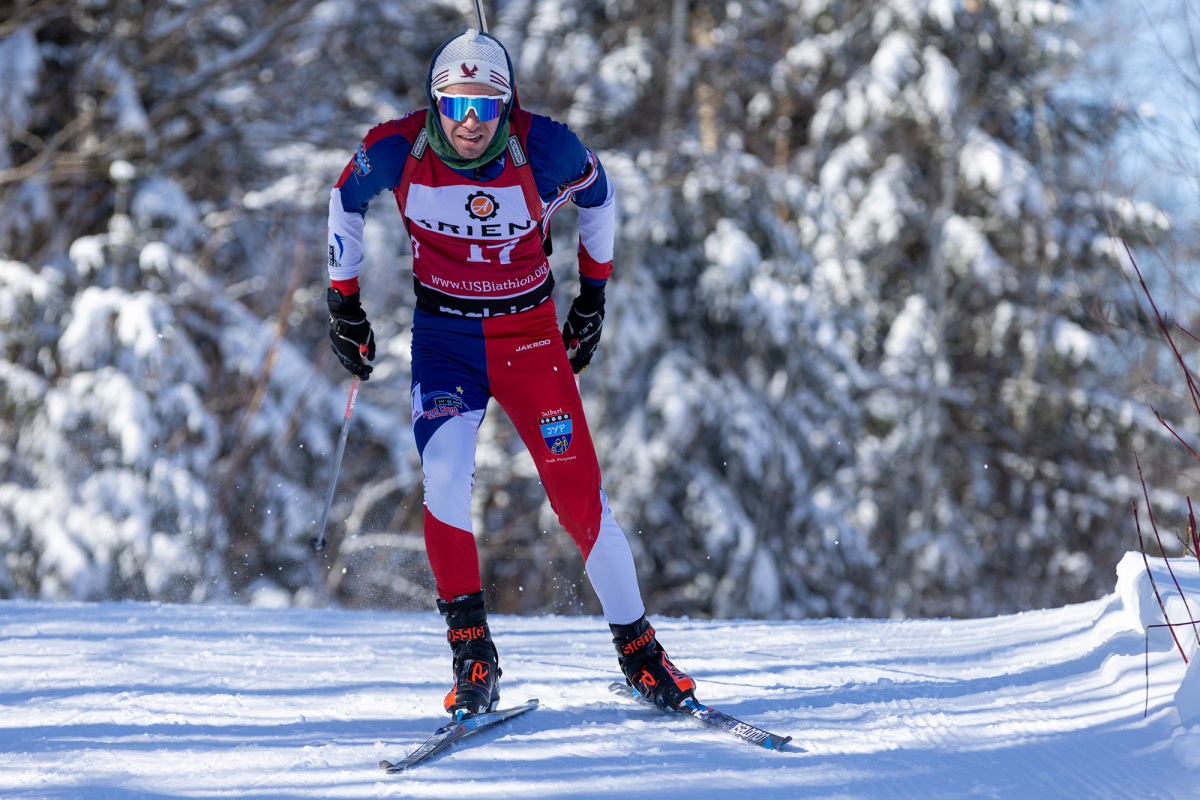
After a gray winter that seemed to always be either snowless or stormy, the world’s best biathletes were thrilled to head to Antholz, Italy two weeks ago, where the sun finally shone in the Alps.
The North Americans, it seems, are even happier to be in Oslo, Norway, where the World Cup kicked back into action with a pair of sprint races on Thursday.
“There is a good vibe here in Oslo,” U.S. biathlete Annelies Cook told FasterSkier.
Sure thing: of five North American women who started, all finished in the top 35, which they believed had never happened before.
“Today was not only a great day for the US, but also for the Canadian women,” said Cook’s teammate Sara Studebaker. “[It’s] always great to show Europe that North America can mix it up.”
“We’re all so happy for one another,” Cook agreed.
The field was slightly smaller on Thursday, with only about 75 starters compared to 95 two weeks ago in Antholz. U.S. Biathlon Association President Max Cobb said that while all the major teams were in attendance, several brought reduced squads due to the recent Under-26 Championships in Slovakia and the high cost of staying in Scandinavia.
But although the fields might not have been large, they were certainly talented. Germany’s Magdalena Neuner won the sprint with perfect shooting, extending her lead in the overall World Cup standings; second-place Darya Domracheva of Belarus and third-place Tora Berger of Norway are now ranked second and third in the overall standings as well. Only three of the top 20 women decided to sit the weekend out.
That made the North Americans’ performances even more noteworthy. The group was led by Megan Imrie of Canada, who collected a career-best 17th-place finish after shooting ten for ten.
“I was a little sick last week so I knew skiing wouldn’t be as strong as I would like,” Imrie explained while describing her race strategy. “I focused solely on the shooting process, taking each shot one breath at a time. The targets in Holmenkollen just wanted to fall today.”
Imrie’s performance put her 1:46 behind Neuner and roughly 20 seconds out of the top ten.
Canadian teammate Zina Kocher had an opposite experience en route to 25th place: she skied the ninth-fastest course time, but missed three shots, keeping her out of a top finish.

“Definitely, shooting was frustrating,” Kocher told FasterSkier. “I seem to have a three-miss curse for sprint races this year! I’m not sure what happened in my prone, [because] everything felt good.”
After missing twice in the initial prone stage, Kocher was ranked just 51st in the field. But aggressive skiing allowed her to claw her way up the results sheet despite missing another shot in standing.
“Skiing was great, I had a ton of energy to push for every second,” Kocher said. “I’m hungry for more racing, and body feels great after this last training break.”
Studebaker led the Americans and while her 22nd-place finish was a season-best, she seemed more excited for the quintet’s overall success.
“It’s great to have an individually good day, but when the whole team does well it’s extra special,” Studebaker said.
She did say that her finish was a good confidence boost given a long series of frustrating results so far this season; Studebaker finished one spot higher than she had in this race last year, with Oslo sprints now making up two of her top six World Cup finishes (she also placed 17th at World Championships last year).
“I had a good training block last week, so I was ready to really go for it here in Oslo,” Studebaker said.
Imrie agreed, saying that for the Canadians, who are heading back to Canmore after this weekend to train in preparation for World Championships, all systems were go as soon as they got to Norway.
“It’s clear that our team has flicked their performance ‘on’ switch for this final weekend,” she wrote in an e-mail. “We’re all so happy with the direction we’re headed. Personal bests in Oslo are especially great – a feel good result, hugs all around, and then famous Norwegian waffles hot off the press. They will fuel me through the pursuit.”
Another idea that might motivate her in Saturday’s race is the knowledge that four North Americans are chasing her down. Cook finished a career-best 33rd and fellow American Susan Dunklee 35th.
Dunklee has had a breakthrough season, and the result was in line with her previous finishes; she skied the 14th-fastest course time and was hampered, like Kocher, by three penalties.
Cook, however, had something of a breakthrough of her own, scoring World Cup points for the first time. She missed only one shot, which seemed like a victory in itself after some bad shooting days in previous races, she said.
“Sometimes it seems like biathlon is a sport where you accidentally do well,” Cook mused in an e-mail. “It can be so unpredictable. I was so psyched to have a good day on the range – I really needed that for my confidence.”
Cook cited fast skis and cheering from the hordes of schoolchildren lining the course as a few more reasons she flew around the trails.
“It was a really good mental course for me, where I could focus on getting to the top of the one long climb, have a good rest and then finish the next before coming into the range,” she added.
The one factor that could have curbed the North Americans’ enthusiasm about Oslo was the weather, which forecasted frigid temperatures for the weekend, so much so that Norwegian biathletes Lars Berger and Ole Einar Bjørndalen reportedly urged organizers to consider canceling the races. But the Canadian women didn’t seem fazed.
“It was a bit cold today, a humid minus 10 [Celsius], so like a good Manitoba girl, I employed every hand warming strategy in the book,” Imrie said, pointing out the reason that cold races can be even tougher for biathletes than skiers: bulky gloves and mittens don’t work with rifle triggers.
And what if temperatures hit the minus 18 Celsius predicted for the weekend?
“A good warmup and lots of long underwear will be key,” Kocher said.




